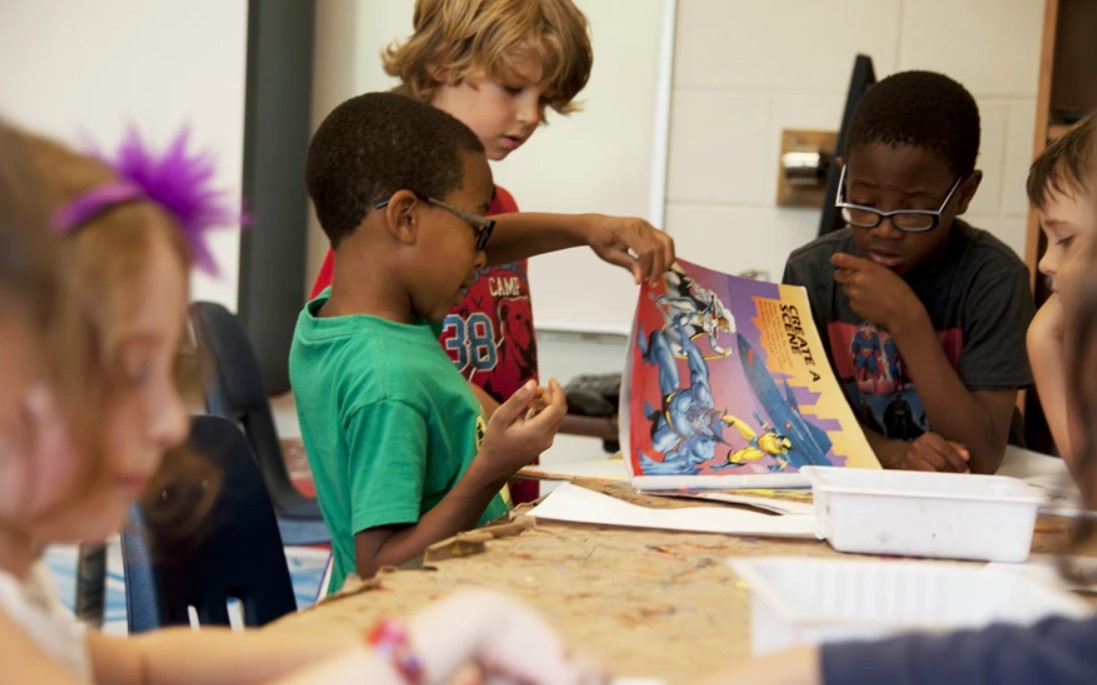Josh Pickel’s dissatisfaction as a teacher was mounting. After several years of teaching in other public schools, mostly at the elementary level, he was finally back in his hometown of Canton, Illinois teaching middle school science at the public school he attended as a child. It was what he had always wanted; yet, he was feeling increasingly unsettled.
“I really enjoyed working with the kids, but what I did not enjoy was the sort of weird power dynamic that exists between student and teacher in the classroom,” Pickel told me in a recent interview. “I had to tell them when they could eat or drink, or go to the bathroom or wear a hat, and I didn’t like that. I think school takes rights away from kids in the interest of keeping order.”
While his unease about the classroom dynamic grew, he was also seeing a different dynamic unfold in the after school digital media club he started. There, Pickel said, students were free to work on projects that interested them, without being forced to do so. He began to wonder: “What if we removed coercion and those kids were allowed to focus their energy and their intellect on things they care about?”
Pickel began researching alternative education models and came across Liberated Learners, a network of self-directed learning centers for teenagers modeled after North Star, a learning center in western Massachusetts that was started in 1996 by Ken Danford, who was also a disillusioned public middle school teacher.
Pickel was hooked. He connected with Danford, and Liberated Learners cofounder Joel Hammon, watched their TED talks and got tips on how to launch a learning center of his own. This summer, Pickel took the leap. He quit his teaching job in July to open Canton Learning Collaborative, a self-directed microschool for homeschoolers. He currently has six young people enrolled, ages 12 to 15, who attend the full-day, drop-off program four days a week.
“So what we do is help teenagers leave the traditional school system, declare as homeschoolers, and then provide support for them to pursue their interests and goals,” said Pickel. The student members each have an advisor with whom they meet weekly to go over progress. All classes and attendance are optional, and there are no grades or mandatory testing.
Pickel’s new microschool is just one of many sprouting across the country, each with its own educational philosophy and approach. Microschools, or small, multi-age learning communities, were growing in popularity prior to 2020, including those connected with networks such as Liberated Learners, Acton Academy, Prenda, and Wildflower Montessori. The education tumult of the past two years has accelerated their growth, prompting more parents to consider innovative learning models and schooling alternatives.
Even as most traditional schools reopen normally this fall, shedding many of their pandemic policies, parents continue to seek out other options such as microschooling. “Thousands of families have found microschools to be the educational option that meets the needs of their children,” said Kelly Smith, founder of Prenda, which now operates more than 300 microschools reaching over 3,000 students in six states. “That’s why the microschool movement will continue to grow for decades to come,” he added.
Some microschools, such as many of the ones operated by Prenda, are tuition-free for families in states with robust education choice policies. Others are often a fraction of the cost of local private schools, making them more accessible to more families. Pickel’s new microschool, for example, operates on a sliding-scale annual tuition structure, ranging from $4,500 to $7,500, with additional opportunities for fee reduction for families unable to pay the minimum tuition amount.
There are more signs of growth in the microschooling sector this year. Ashley Soifer is the cofounder, along with her husband Don, of the National Microschooling Center, an organization that works to support microschool founders and the families they serve. The center emerged from the Soifers’ work creating MicroschoolingNV that was instrumental in helping to launch microschools throughout the state of Nevada, including a highly successful microschool partnership with the city of North Las Vegas. Their new center enables them to have broader reach and impact as microschools spread nationwide.
“The microschools that we work with are constantly growing and evolving,” said Soifer. “We expect to see continued growth over the coming year as more microschools are launching around the country. It’s truly exciting to see all of the new models. Microschooling is about building a program for your learners, each one is unique, and that is a trend that isn’t going away.”
Josh Pickel agrees. As a teacher, he has found renewed passion for the profession he loves by helping his students explore their passions and pursue their goals. He believes smaller, more personalized learning communities like his will continue to expand and flourish. “I think this sort of thing will become a large percentage of the way we educate kids over the next 20 years,” said Pickel, “and I’m excited to be bringing it to my community.”
This article has been republished with permission from Forbes.com.
Source: FEE
